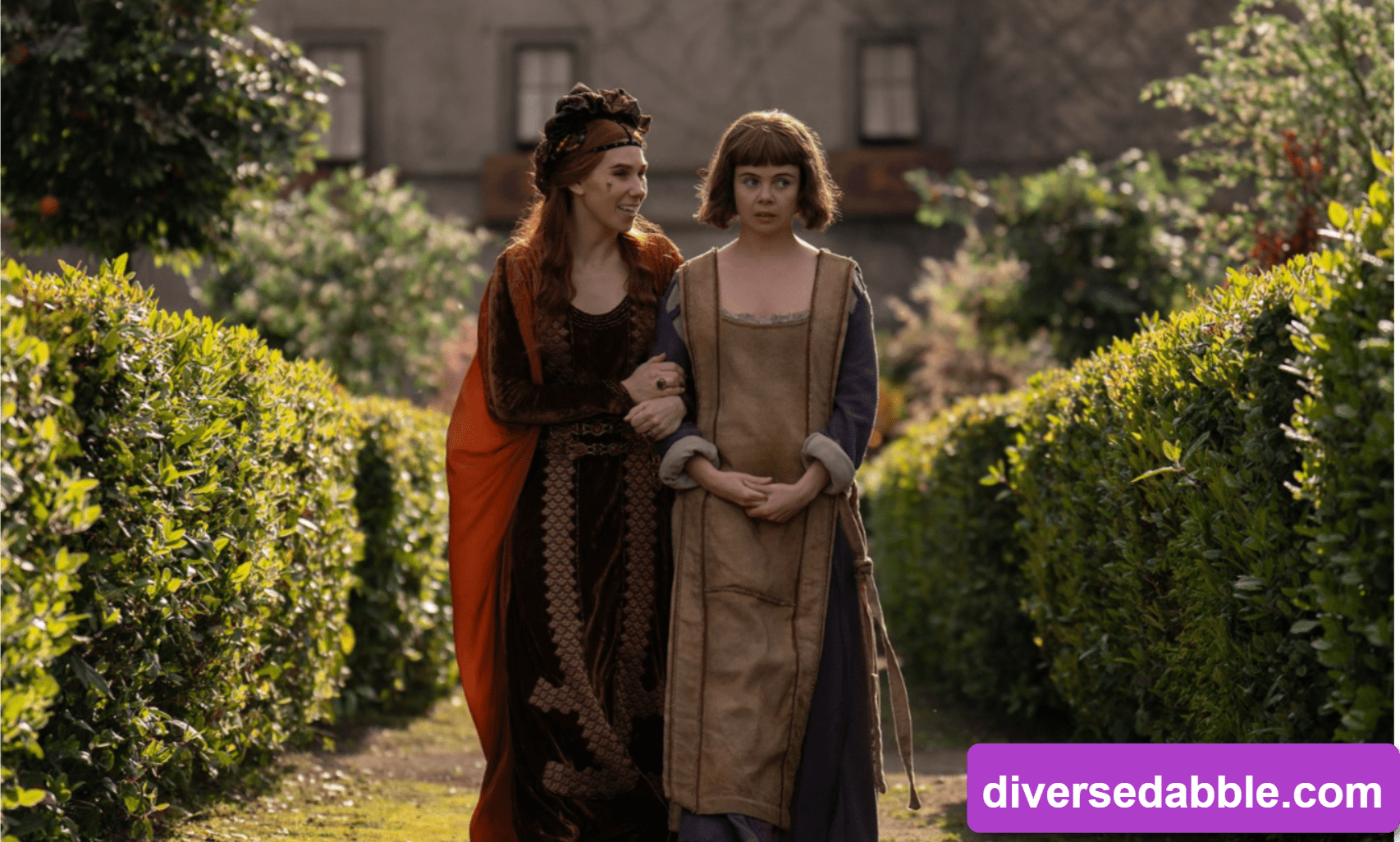The Decameron Review: These days, the success of a pandemic-themed story often hinges on its timing. While some creators opt for a contemporary approach reflecting recent events, others delve into history to explore current fears and anxieties. Netflix’s upcoming adaptation of The Decameron exemplifies this latter approach, brought to life by creator Kathleen Jordan (known for Teenage Bounty Hunters) and executive producer Jenji Kohan (Orange Is the New Black).
Those familiar with literature may recognize The Decameron as a collection of tales penned by Giovanni Boccaccio in the 14th century. It revolves around a group of men and women who escape the Black Plague by retreating to a countryside villa in Florence. While in seclusion, they share stories, resulting in a total of ten narratives (the title derives from the Greek words for “ten” and “day”).
Though The Decameron has seen numerous adaptations, including the 2017 film The Little Hours, most versions explore only a few stories rather than the complete collection. Netflix’s adaptation takes some liberties with the source material but maintains the themes of repression, indulgence, and the sorrow of isolation, offering one of the year’s standout dark comedies.
The Decameron (2024)
- Rating: TV-MA
- Genres: Drama, Comedy
- Release Date: July 25, 2024
- Cast: Amar Chadha-Patel, Lelia Farzad, Lou Gala, Karan Gill, Tony Hale, Saoirse-Monica Jackson, Zosia Mamet, Douggie McMeekin
- Creator: Kathleen Jordan
What Is The Decameron About?
In 1348, Florence is plagued by the Black Death, devastating the lower classes while the wealthy seclude themselves to avoid infection. A group of nobles and their servants receive an invitation from the enigmatic Lord Leonardo to his countryside manor, Villa Santa. For Pampinea (Zosia Mamet), it’s a chance to reunite with her betrothed after their engagement, while her devoted maid Misia (Saoirse-Monica Jackson) faces the prospect of a future apart from her lady. Conversely, Licisca (Tanya Reynolds) sees the villa as an opportunity to reinvent herself, while her employer Filomena (Jessica Plummer) struggles with her identity beyond her wealth.
As the guests arrive at Villa Santa, they begin to assess one another. Tindaro (Douggie McMeekin), a hypochondriac and proto-incel, is off-putting with his fixation on health and disdain for women, exacerbated by the questionable “treatments” of his charming doctor Dioneo (Amar Chadha-Patel). Neifile (Lou Gala) and Panfilo (Karan Gill), a married couple, grapple with their platonic relationship, with Neifile’s devotion to God conflicting with her desires and Panfilo’s commitment stretching thin.
Leonardo is absent upon their arrival, and the guests are welcomed by the villa’s steward, Sirisco (Tony Hale), and the no-nonsense servant, Stratilia (Leila Farzad). Though Villa Santa seems like a perfect refuge from the plague, it also prompts the guests to confront their societal roles and expectations. As supplies dwindle, the group faces the dilemma of whether to admit outsiders, including Leonardo’s charming but dubious cousin Ruggiero (Fares Fares), risking further complications.
The Decameron’s Strength Lies in Its Stellar Ensemble
It’s no surprise that a cast featuring talents like Mamet, Hale, Jackson, and Reynolds is a major asset to The Decameron. This impressive ensemble is a key reason why the show captivates viewers, prompting them to eagerly continue to the next episode. Mamet, known for her vibrant portrayal of Shoshanna on HBO’s Girls, fully embraces her role as Pampinea, delivering a performance rich in humor and eccentricity. Jackson’s portrayal of Misia oscillates between unsettling cheerfulness and raw emotion, reflecting the toxic dynamics of her relationship with Pampinea.
Reynolds navigates the complexities of Licisca’s dual identity with skill, particularly as she grapples with her feelings for Dioneo and her loyalty to Filomena. Hale’s portrayal of Sirisco adds a comedic touch as he attempts to manage a group of demanding guests.
Among the lesser-known cast members, Gala and Gill shine as Neifile and Panfilo, whose evolving relationship adds depth to the narrative. Gala’s Neifile undergoes significant personal growth, while Gill’s Panfilo develops from a distant spouse to a figure of genuine affection. Even McMeekin, who plays one of the most annoying characters, brings complexity to Tindaro, revealing more than meets the eye. Plummer’s Filomena, too, becomes a standout as she starts to assert her own agency rather than rely on others.
Despite the strong ensemble, Chadha-Patel’s role as Dioneo doesn’t allow for much range, as his character primarily serves as a charming but superficial figure. His budding romance with Licisca, which begins as a series of hookups, feels cut short, leaving potential untapped.
Balancing Tragedy and Comedy in The Decameron
At first glance, a show set against the backdrop of the bubonic plague might seem destined for somber territory. However, The Decameron, described as a dark comedy, adeptly balances humor and tragedy, ensuring both elements are impactful. As the season progresses and stakes rise, the series explores deeper calamities, but it never trivializes the dire circumstances of the characters. The show’s ability to find humor amid darkness helps it avoid becoming overly grim. Its unique energy is enhanced by its soundtrack, featuring tracks from bands like Sparks and Depeche Mode.
Ultimately, The Decameron resonates as a pandemic-era story, reflecting the confinement and introspection many experienced. While set centuries ago, this seemingly rowdy house party comedy uncovers profound themes of struggle, heartbreak, and, ultimately, triumph beneath its surface.
